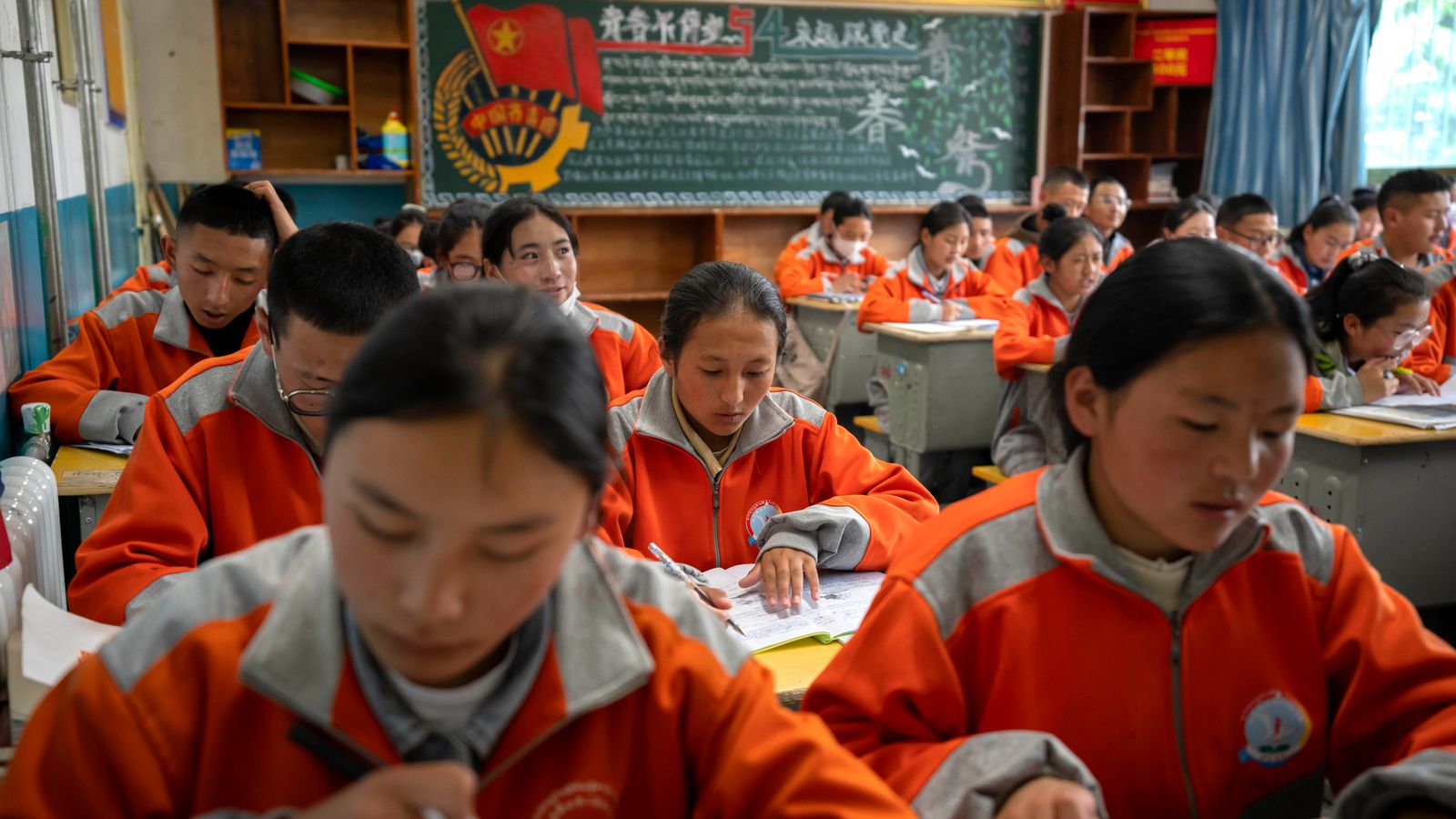China has launched an aggressive campaign to get 85% of its citizens speaking Mandarin by 2025.
The order, issued on Wednesday by the State Council, China‘s cabinet, said the use of Mandarin, known in Chinese as “putonghua” or the “common tongue”, remains “unbalanced and inadequate”.
The government plans to make use of Mandarin – the national language – virtually universal by 2035, including in rural areas and among ethnic minorities.
The move threatens regional dialects, such as Cantonese and Hokkien, and minority languages such as Tibetan, Mongolian and Uighur.
The policy is backed up by legal requirements for the language to be spoken as the official language of government agencies, in schools, news and publications, radio and film and on public television.
The promotion of the language over others has sparked occasional protest – including last year in the Inner Mongolia region where Mongolian was replaced by Mandarin as the language of instruction.
China’s ruling Communist Party has denounced all such complaints as a form of separatism and repressed them ruthlessly. It says language conformity is necessary to meet the demands of a modern economy and for national unity.
Government attempts to promote Mandarin through its worldwide network of Confucius Institutes have been controversial, with critics denouncing them as an attempt to promote the party’s agenda and quash discussion of topics such its human rights record.






















